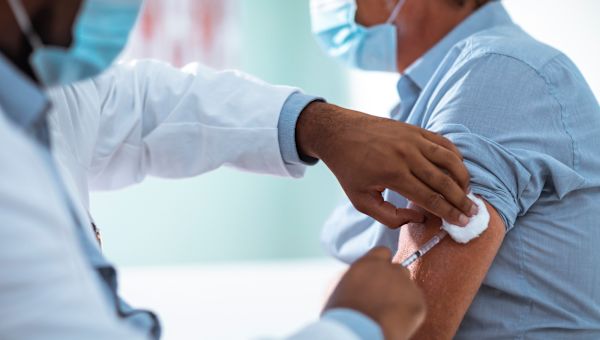
The novel coronavirus can be fatal but in most cases it doesn’t lead to severe complications.
BY MARY ELIZABETH DALLAS
The outbreak of COVID-19 and the first confirmed death in the United States has sparked fears about infection and a global pandemic. As of March 16, the novel coronavirus has spread to 148 countries and territories and claimed more than 6,700 lives, surpassing the death toll from severe acute respiratory syndrome (SARS).
That illness, which is caused by SARS-associated coronavirus (SARS-CoV), was first reported in Asia in February 2003. SARS spread to more than 29 countries and claimed nearly 800 lives before it was contained about a year later.
The World Health Organization (WHO) points out, however, that COVID-19 is not as deadly as SARS, or Middle East respiratory syndrome (MERS-CoV), which originated in Saudi Arabia in September 2012. Roughly three or four out of every 10 MERS cases has been fatal, according to the Centers for Disease Control and Prevention (CDC).
By comparison, the WHO estimates that more than 80 percent of those with COVID-19 will develop only a mild infection and recover. Only about 16 percent of cases result in severe illness and complications, including pneumonia and trouble breathing. Fewer still, about 5 percent, will develop very serious issues, including respiratory failure, septic shock and organ failure. As researchers continue to learn more about the coronavirus, estimates for its mortality rate range from 0.6 to 3.4 percent.
Anyone can become infected with COVID-19 but older people seem to be among those at highest risk. Children, meanwhile, appear to be less likely to develop serious illness, the WHO points out. Scientists are still working to understand why this may be the case.
People with pre-existing medical conditions, such as asthma, diabetes and heart disease, may also be at highest risk of developing a severe infection.
What happens to those with COVID-19?
Symptoms of COVID-19 may appear anywhere from 1 to 12.5 days after exposure, the CDC reports. The WHO adds that in most cases, the coronavirus has an incubation period of about 5 to 6 days, noting that anyone exposed to someone with a confirmed diagnosis should be monitored for 14 days.
Researchers are still investigating how the coronavirus affects the body, but the most commonly reported symptoms include:
- Fever
- Dry cough
- Fatigue
- Phlegm or a productive cough
- Shortness of breath
- Sore throat
- Headache
- Muscle and joint pain
- Chills
Less commonly reported symptoms include, nausea or vomiting and diarrhea.
People with COVID-19 could even mistake their symptoms for the flu or a common cold. That’s why laboratory tests are needed to confirm the diagnosis.
More severe coronavirus infections could lead to pneumonia. This occurs when the infection triggers inflammation in the lungs' air sacs (alveoli), causing them to fill up with fluid. When this happens, breathing becomes more difficult, which prevents oxygen from reaching the blood.
In severe cases, COVID-19 could also lead to acute cardiac injury, an irregular heartbeat or arrhythmia, shock, and acute kidney injury or kidney failure, according to the CDC.
It’s the job of the kidneys to filter waste products from the body, help produce red blood cells and regulate blood pressure. Those with kidney failure have lost 85 to 90 percent of their kidney function, which is insufficient to sustain life without treatment.
How to protect yourself
Unlike the seasonal flu, measles or other vaccine-preventable diseases, there are no immunizations that help protect against coronaviruses. Still, there are steps you can take to reduce your risk of infection, including:
- Washing your hands well and often with soap and water for at least 20 seconds each time
- Not touching any part of your face, including your eyes, nose or mouth with unwashed hands
- Avoiding people with suspected or confirmed infections
Many people, particularly those in affected areas, have chosen to wear face masks to protect against COVID-19, resulting in price gouging and critical shortages among medical health professionals in certain parts of the world. The WHO emphasizes that medical masks don’t ensure infection prevention, adding that wearers should also protect themselves in other critical ways like handwashing and keeping their distance from others.
Anyone who thinks they may have been exposed to COVID-19 or is concerned about flu-like symptoms, such as fever, coughing or trouble breathing, should see their healthcare provider. It’s particularly important to seek medical attention right away if you’ve recently travelled to an affected area, particularly China, Italy, Iran or South Korea, or you have symptoms and believe you may have been exposed to the coronavirus.
Medically reviewed in February 2020. Updated in March 2020.
Sources:
Johns Hopkins University; The Center for Systems Science and Engineering (CSSE). "Coronavirus COVID-19 Global Cases."
Centers for Disease Control and Prevention. "SARS Basics Fact Sheet."
World Health Organization. "WHO Director-General's remarks at the media briefing on COVID-2019 outbreak on 17 February 2020."
World Health Organization. "Middle East respiratory syndrome coronavirus (MERS-CoV)."
World Health Organization. "Coronavirus disease (COVID-19) advice for the public: Myth busters."
World Health Organization. "Q&A on coronaviruses."
Centers for Disease Control and Prevention. "Coronavirus Disease 2019 (COVID-19)."
American Lung Association. "Learn About Pneumonia."
National Kidney Foundation. "What is Kidney Failure?"
